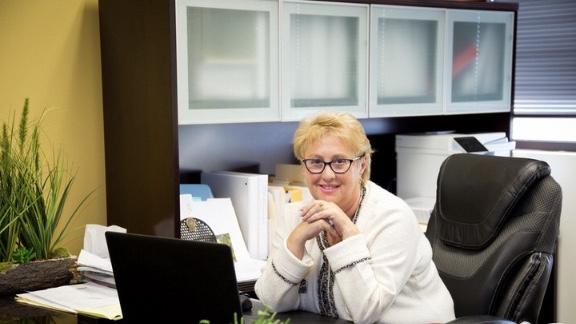SACRAMENTO, CA | by Ed Goldman| April 3, 2019
Original article can be found at: https://www.bizjournals.com

“I call myself a Soviet Union child,” Tatyana Bak is telling me over lunch yesterday. The CEO of Elica Health Centers came to the U.S. when she was 15 years old — she’s now 58 — and was born in the city of Odessa, on the Black Sea, back when there were 15 country-states in the Union of Soviet Socialist Republics.
In a nice circular irony, she ended up cofounding a J Street clinic in downtown Sacramento — with Dr. Alexander Yanushkovsky, himself a Russian immigrant — where he treated, free of charge, their fellow newly arrived settlers. That small office eventually grew into Elica, a collection of what will be 11 health centers by year’s end.
Bak joined the rebranded Elica as its chief operating officer six years ago, when its federally funded budget stood at $5.49 million (Elica is a federally qualified health center, or FQHC). After a health sabbatical, she returned as Elica’s CEO in 2017. One year later, the organization’s annual budget was $25.97 million.
“My family were first Russian immigrants in Sacramento in 1970s,” she says with what sound like equal parts matter-of-factness and pride. (Like many Russians who learned English in the U.S., my grandparents included, she tends to drop articles when she speaks — such as “the” before “Russian immigrants” and “1970s,” above. But since she’s so articulate, you quickly realize that many of the articles we use, like “the” and “a,” are superfluous to understanding the meaning of what someone is saying.)
Elica treated approximately 30,000 patients in 2018, and expects to serve nearly 42,000 this year in 146,000 visits. That part’s important because those visits can take place in any of the organization’s strategically located clinics in Sacramento and Yolo counties “and on riverbanks, under bridges or in parks, wherever homeless gather,” Bak says. That population is a key demographic for Elica. It now has two vans that are equipped as mobile clinics, and will add a third later this year, Bak says.
In addition, Elica maintains an SUV for a veterinarian to visit homeless encampments once a week. “We find that if we make friends with their pets first, homeless people trust us more,” she says. (Elica reports that 25 percent of Sacramento’s homeless are pet owners.) Not long ago a severely ill homeless man — among his maladies, he had the fatal-if-not-treated sepsis — “refused for eight hours to let us take him to hospital because he was afraid for his dog.” An Elica employee found a shelter for the pet and the man had life-saving surgery; he and his dog now live in public housing Elica had located through its many social-service partnerships. “Not all stories have happy endings,” Bak says, “but this one did.”
I hasten to point out that Elica is about more than treating the homeless and disenfranchised. Its patients include people with low incomes (nearly 97 percent of its patient population), including many on MediCal. “We serve any patient regardless of their ability to pay,” Bak says. She also points out that well over half of its clientele are women.
Bak has been married for 37 years to Victor Flek, who has also been her business partner. They have two grown sons — neither of whom is in the health care business. “I think they see how hard I work when they’re growing up that they think, ‘No way!’” she says, laughing.
She still works plenty hard. She has arrived at our interview using a walker (she had broken her leg in a fall). But when I jump to assist her to the table, she cheerily waves me off. Turns out she just returned from a grueling business trip to Washington D.C., where she “didn’t miss single meeting” as she got about the town with the walker. This “Soviet Union child” is one tough woman. Da!
Share this Post












